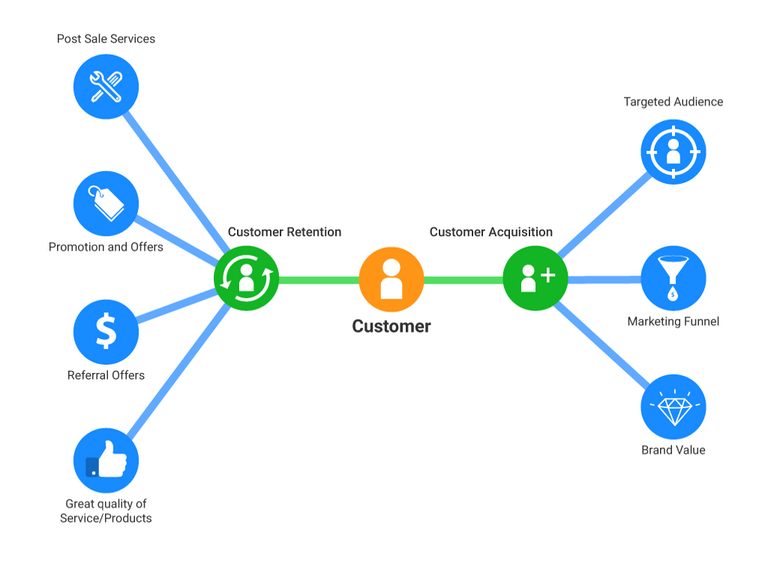June 17, 2016 By: Vikas Agarwal
Success of a business is directly connected with how the business is faring on two vital aspects: Customer acquisition and Customer retention.
Both of these aspects are directly related to the level of engagement your business is having with your customers.
In this post, I would like to discuss how your CMS may help your business engage better with your customers and in turn, deliver better rates of retention and acquisition of customers.
Factors Affecting Customer Acquisition and Customer Retention

Your digital presence can have a direct impact on how well you achieve these two objectives. And, your digital presence depends on your channels of customer interaction, including:
- Website
- Social media
- Mobile apps
So, essentially if you get your digital presence right, you have better prospects of acquiring more customers and retaining the existing ones. Let’s see how your CMS can help you with these:
Reaching the Targeted Users
This requires an SEO-friendly CMS that allows your marketing team to enter tags, keywords, and Meta information. The ability to have SEO-friendly URLs, clean HTML markup, automatic sitemap generation and speed of page loading are other abilities of a CMS that help drive traffic to your website. A combination of accurate targeting and large user outreach increases the chances of conversion.
Brand Building
If your marketing team doesn’t have to depend upon the developers for minor changes, they can take control of establishing the brand value. If your CMS allows the marketing team to update text content, enter multimedia content, run promotional campaigns, perform on-page SEO themselves and then, link your social channels with the website for the content distribution, the effort in establishing your company’s brand would be reduced to a great extent. Less investment of time & money will positively impact your brand’s presence on the Web.
Analytics-driven Marketing
If your CMS features a built-in analytics module or supports effortless integration with an analytics service, it will give you a great deal of information about who is visiting your site, the time they’re spending on your site, and the pages receiving the maximum traffic, etc. In addition, depending upon your CTA’s (Call to Action) in your site, your site might as well be collecting data about users. You can utilize these behavioral insights to create a marketing funnel and build future strategies for increasing conversions.
Post-sales Service, Support & Retention
Your website can also help in building a commendable post-sales service and support if your CMS has built-in support or an extension that allows post-sales engagement with your customers. Living in a fast-paced world, clients prefer digital engagements over IVR-based issue resolution mechanisms. A great CMS can also help you engage your customers on social media if it has native integration with social media channels, such as Facebook, Twitter, Instagram, LinkedIn, Pinterest, etc.
Promotions, offers, referral benefits, supported & offered, natively by your CMS or by means of a pluggable extension, can evidently create a new user base and greater likelihood of customer acquisitions and retention.
Of course, for a CMS to deliver its expected business value, your selection of the best-fit platform should be diligent and based on your business’ expectations and current IT situation. For instance, for a smaller business just willing to be present on the Internet, a platform like WordPress might be suitable. On the other hand, for a full-featured portal, able to drive business decisions, include complex workflows, data structures, and serious integrations with the other parts of a large IT spectrum, Telerik Sitefinity might be the right product.
In addition, any CMS would deliver results only if the organization has invested in building a user experience that makes users love them. Truly, your portal, being one of the most important customer touchpoints, makes you realize the value of dollars spent in UX engineering.



